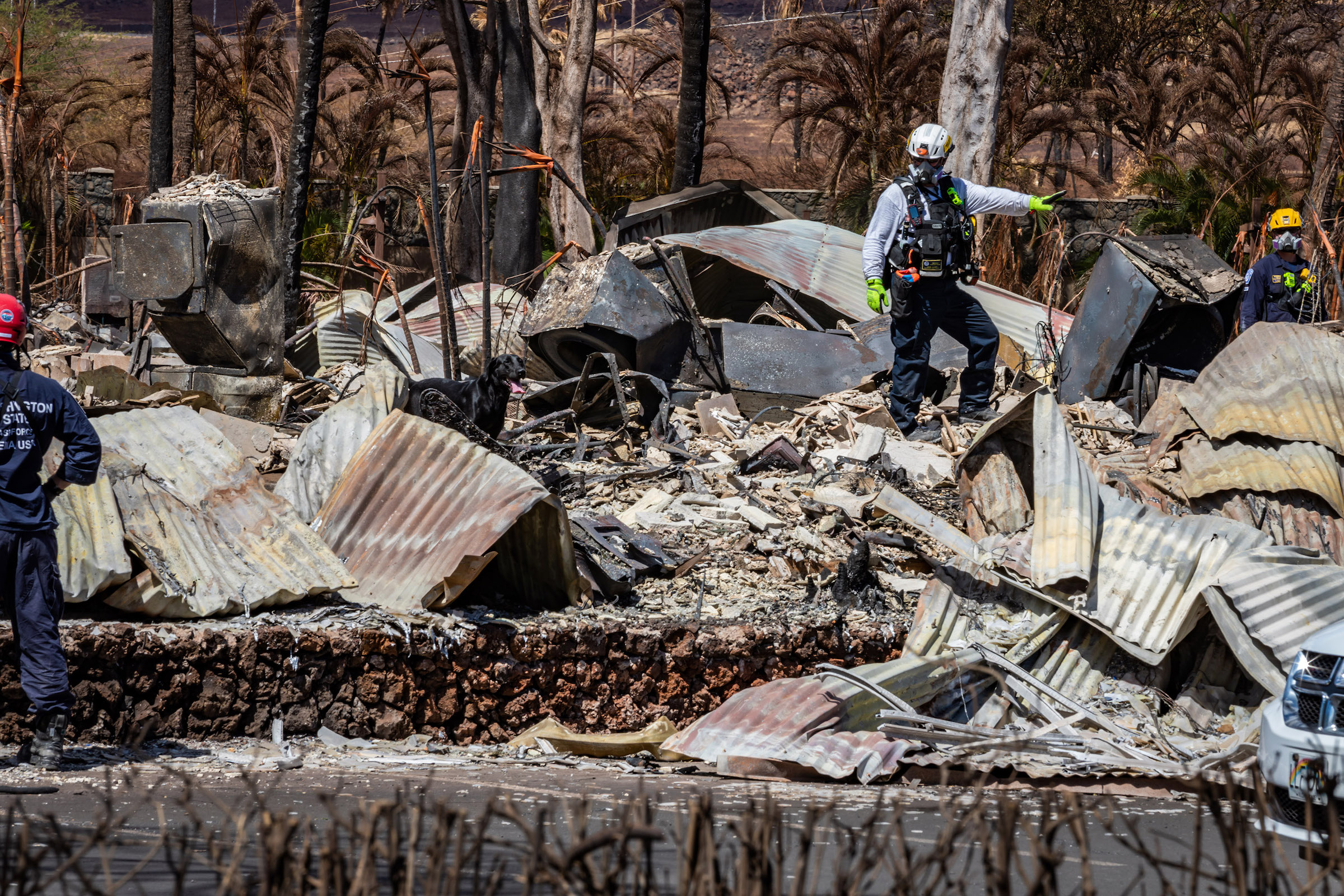Modern building codes and construction techniques were effective in saving buildings from the devastating Maui wildfire on August 9th, according to a recent report, IBHS Early Insights Lahaina Fire—2023, from the Insurance Institute for Business and Home Safety’s research division.
The report cited a residential development, consisting of a mix of single-family homes and a cluster of multifamily units built between 2019 and 2020, that escaped destruction. The structures survived the conflagration at least partly due to fire retardant construction and modern building codes, the report says.
The exteriors of several of these buildings did ignite, but they were not consumed by flames. “Hawaii’s modern building code has high-wind requirements that introduced elements that helped newer construction resist wildfire conditions,” the report says.
Despite the buildings being located close together, the development was spared in part because of:
- Class A roof covers—specifically asphalt shingles and metal
- Non-combustible exterior wall materials
- High wind-rated attic vents that prevented embers from entering the attic space
Notably, the report adds that landscape vegetation did not cover as much ground as it did in other locations that were destroyed by the fire. This provided less fuel for the flames to jump from one structure to another.
Related Stories
| Oct 11, 2012
OSHA launches pilot program for alternative dispute resolution on whistleblower complaints
The Occupational Safety and Health Administration (OSHA) is launching an alternative dispute resolution (ADR) pilot program for complaints filed with OSHA's Whistleblower Protection Program.
| Oct 11, 2012
Bill promotes investment in commercial, multifamily retrofits
The Commercial Building Modernization Act recently introduced in the Senate would extend and streamline a current tax deduction to encourage commercial and multifamily residential building owners to perform comprehensive energy-efficient retrofits.
| Oct 11, 2012
Morristown, N.Y., settles code violation dispute with Amish
The town of Morristown, N.Y., has dropped charges of building code violations against local Amish communities to settle a First Amendment complaint.
| Oct 11, 2012
Mesquite, Nev., rebels against state-mandated energy code
The city council of Mesquite, Nev., voted against adopting a new energy efficiency code adopted by the state.
| Oct 11, 2012
Bloomingdale, N.J., restricts ground solar and wind energy installations
The borough of Bloomingdale, N.J., recently adopted regulations for solar-energy and wind energy systems.
| Oct 3, 2012
Bill introduced to extend home energy efficiency tax credit
A bill to extend the expired residential energy efficiency tax credit for installing qualified furnaces, boilers, central air conditioners, and heat pumps was recently filed in the U.S. House of Representatives.
| Oct 3, 2012
OSHA publishes more detailed information on variances
The Occupational Safety and Health Administration (OSHA) enhanced its variances Web page to improve public understanding of the variance approval process and increase access to the agency's decisions regarding variance requests.
| Oct 3, 2012
Online program computes energy savings from green roofs; compares savings with other options
A free online tool can calculate the amount of energy savings from installation of a green roof. Portland State University‘s (PSU’s) online Green Roof Energy Calculator can be used for new or old structures.
| Oct 3, 2012
SERF, CSE launch a new accreditation for evaluation of building sustainability
The Society of Environmentally Responsible Facilities (SERF), a Chicago-based environmental building certification organization, and the Centre for Sustainability and Excellence (CSE) launched a new accreditation program that certifies professionals to evaluate buildings’ sustainable systems and practices according to SERF’s certification criteria.
| Oct 3, 2012
New version of Occupied Space Standard for DC microgrids in buildings released
The EMerge Alliance, an association leading the adoption of safe direct-current (DC) power distribution standards for commercial buildings, has updated the EMerge Alliance Occupied Space standard.















